Keynote Speech to the Cumberland RSL re The Future of the RSL by Charlie Lynn, 16 December 2020
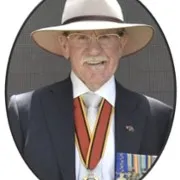
I don’t want to bring bad tidings to you this close to Christmas but the fact is the RSL doesn’t have a future unless there is radical change to meet the needs of future generations of custodians of the legacy we have inherited from our Anzacs.
The future is reminiscent of a story I used to play to my girls about a Christmas tree around this time each year. Towards the end of the story, as the pines began to wilt the young girl asks the Christmas tree why it looks so sad. ‘I can’t be happy’ replied the tree, ‘they’ve cut off my roots’!
And so it is with the RSL. As most of you know from the history we used to learn, Australia was just 13 years old when World War 1 was declared. Over the next four years almost half-a-million people enlisted to fight. When the war was over 270,000 of them returned home needing some form of assistance – 155,000 had been wounded.
A ‘Returned Services League’ was established among their own to help care for them.
Their task of repatriation, care and fellowship was made even more difficult with the onset of the Great Depression a decade later.
Then came World War 11 where another million servicemen and women were added to the roll of those in need of help. Of these 66,553 were wounded and 21,634 had been Prisoners of War at the hands of the Japanese.
Between the end of World War 11 and the Korean War the RSL had become the most powerful non-government organisation in Australia.
It was a grassroots organisation based on a network of sub-branches reporting to State Branches which had been established under state legislation. It was not therefore a national organisation but rather a federation of these state branches.
Membership was restricted to those who had returned from overseas service which created some deep resentment among those who enlisted to serve but who never left Australia’s shores because they were needed to defend their homeland which was under serious threat at the time.
Anzac Day became the focus of their commemorative services and in the early post-war period it seemed as if every town in Australian had their own battalions.
State and local governments and benefactors generous donated or bequeathed small blocks of land for sub-branches to build a hut or a hall for them to meet. As we grew as a nation over the years these blocks increased in value to the extent that today many are worth are worth millions of dollars and provide a solid asset base for the RSL today.
During my time as Parliamentary Secretary for Veterans Affairs in NSW I was often given the impression that the current occupants of some sub-branches regarded the land and buildings they inherited as their own personal asset.
I found it was difficult to convince them that they were custodians – not owners. As a result they had a duty of care to ensure the asset was used for the benefit of current and future veterans who would assume custodianship of the place after they had passed on.
The government was also generous in granting charitable status to the RSL, while also allowing some state branches to accumulate considerable wealth through the introduction of licensed poker machines and the conduct of Art Union lotteries.
In NSW the introduction of pokies led to licensed clubs being subject to a separate Act of Parliament. Unfortunately, this has led to a situation where some sub-branches and clubs have spent millions of dollars fighting each other in court over the ownership of the land they inherited. I often felt the founding fathers of the league would be greatly distressed over the emergence of the courtroom as the new battlefield for the custodians of their legacy. The beneficiaries of their vision were supposed to be veterans – not lawyers!
And while they were internally focused on the fights over their inheritance they didn’t hear the cries for help from our younger veterans from Iraq and Afghanistan who are now experiencing greater adversity at home than they did on the battlefield.
Today veterans unemployment is five times the national average at 30 per cent – one in 20 homeless Australians have served in the ADF; and the current suicide rate for our young veterans is twice as high as those who haven’t served.
The failure of the RSL to hear their call has led to the spawning of a number of self-help veterans organisations such as Soldier On, Mates for Mates and the Bravery Trust who they can relate to. Others have been established for similar reasons in the past such as the Vietnam Veterans Association, the Defence Force Welfare Association, War Widows and countless other battalion, flight and naval associations who operate outside the RSL umbrella.
A classmate of mine and fellow Vietnam Veteran, Lieutenant Colonel Kel Ryan, has attempted to consolidate them into an ‘Alliance of Defence Service Organisations’ but with limited success.
Recent allegations of corruption in the NSW Branch threatened the very foundations of the RSL by threatening their charitable status. It will take many years to recover from this breach of public trust.
The breach has led to many changes which were long overdue and the task of rebuilding is massive – but from my observations the change is in safe hands under the stewardship of President Jesse James here in NSW and a revamped Board of Directors – but it is almost mission impossible and will take time to rebuild public trust – unfortunately time is not on our side as we are now sitting on the edge of a demographic precipice.
In 2004, we had 240,000 members nationally – today there are fewer than 100,000 – and as our World War 11 and Korean War veterans pass on, we Vietnam Veterans are now moving closer to the edge of a demographic cliff.
According to our NSW State Secretary we have lost an average of 1600 members annually since 2007 and, with our membership currently around 29,000, our ranks could be depleted within 18 years if the current trends continue. The average age is now between 75-78 and only 2600 members are below the age of 55.
The once great organisation that had the ear of Prime Ministers and governments from across the political spectrum has fallen silent in recent years. As a result its relevance in the eyes of the veterans we are supposed to represent and the general public has also fallen.
The leadership of the league has not adapted to organisational change and has vacated the field of public debate.
I recall that they were silent when radical Islamic hate preacher, Man Haron Monis, wrote grossly offensive letters to the wives of soldiers killed in action.
They were silent when a quasi Brigadier outside the chain of command proceeded with charges against two of our commandos for doing the job they were sent to do in Afghanistan.
They were silent over Australia’s membership of the International Criminal Court which could see soldiers we send to war being tried in another country by judges from Africa or the Middle East who could well be sympathisers of the enemy.
They have been silent over the recent Brereton Report which has publicly shamed our SAS, commandos, their spouses and their children.
They have also been silent on the need to protect our wartime heritage along the Kokoda Trail despite numerous calls for assistance.
And they have been silent on the emerging restrictions to free speech in our society as well as the Marxist indoctrination of our children in identity politics under the guise of ‘Safe Schools’ and other woke causes within our education system.
If the RSL wants to reclaim the relevance they once had they need to re-enter the public debate and argue for the basic freedoms our veterans fought and died for – particularly freedom of speech.
As my mate Kel Ryan has said: ‘This is not the time to hunker down below the parapet, shun public discussion and hope that all will peter out. Good men and women must step forward’.
In the meantime the voluntary work of the majority of our foot soldiers in the movement continues unabated below the radar. Welfare officers, women’s auxiliaries and members provide advice and liaison with local, state and federal Government agencies.
They conduct Anzac Day services around the country; organise commemorative services on other significant occasions; add dignity to funerals of fellow veterans; and care for those unable to care for themselves. Their work is often unheralded but they provide the glue that holds the organisation together.
My own Camden sub-branch is a model organisation in this regard – and I know there are many others.
So what needs to be done to restore our relevance and our clout in the veteran community?
One of the key priorities should be to seek to bring contemporary veterans organisations under the RSL umbrella. We need to be bold and consider a name change – something like the ‘Australian Veterans League’ would overcome the restrictions associated with the word ‘Returned’. Invite other contemporary veteran organisations into the fold and offer them seats on the Board.
Allow them to share custodianship of the property assets of the RSL which will ensure their economic sustainability into the future.
Open membership up to the direct descendants of veterans. Have you noticed the resurgence in pride as their children and grandchildren are now wearing the medals of their fathers, mothers and grandparents?
And did you notice the universal respect our quiet Australian community displayed at the end of their driveways on Anzac Day this year?
We are now allowing the descendants of our veterans to join our Anzac Day marches – what about letting them join the Australian Veterans League and carry on the tradition of caring for each other and upholding the values of freedom that they fought and died for?
And what about seeking a sincere reconciliation with licensed ex-service clubs which are now run by professional businessmen and women at the cutting edge of management.
Surely if Israel can establish peace with her Middle Eastern neighbours as we have recently seen it would not be beyond the bounds of possibility for the RSL to seek peace with the clubs and other veteran offshoots and develop a vision that will ensure the legacy of our veterans is never forgotten.
An important reminder of the need to review our vision was brought home to me in a speech given by the late Sergeant Stan Bryant at a small service with some ageing veterans from the 8th Division in Martin Place about 25 years ago:
“I say to all you people were today’ he said at the end of the service.
“To you who are responsible for governing this country, to all you who hold positions of leadership in the community, to all Australians.
“It is from the men we honour today that you inherited this land.
“These were the men who helped build this nation. They were the ones associated with building of our harbours and our bridges. They sealed the roads across the black soil planes, and they built the railways across Australia.
“Then they fought off the Japanese invasion so that you could inherit this country.
“You now have the fruits of our labours. The cities and the harbours and the plains are yours.
“We few survivors are aged and can only look on with pride and wish you success in the future.
“But we do charge you, to accept the responsibility of your inheritance and nourish and guard them with care.
“And remember always, the men of the Eighth Australian Division and the two ships who stood between the Japanese invasion and Australia. They paid the price of your future. Only they know the real cost.
“And remember – remember – we solemnly promised God that we would never forget”.
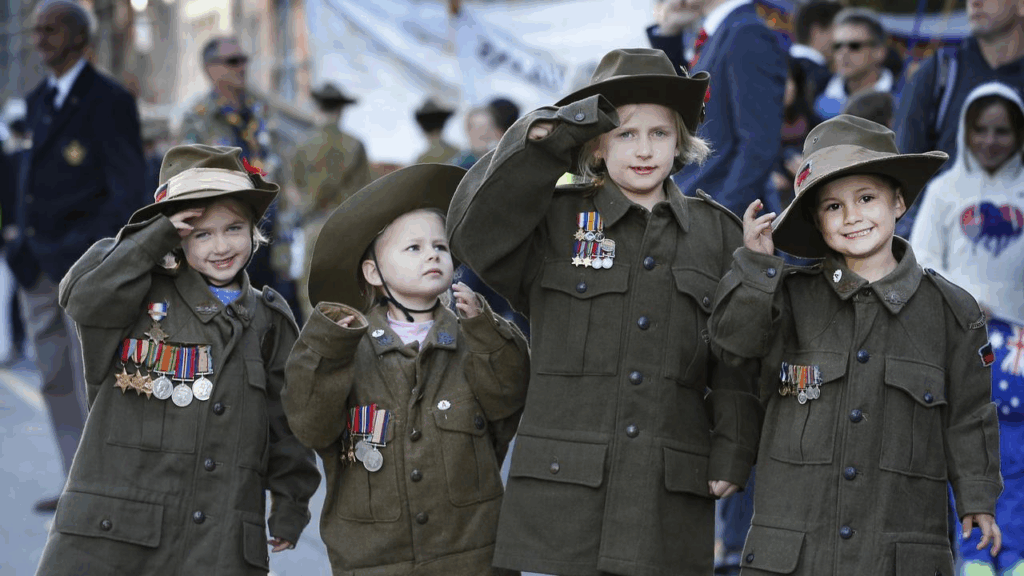

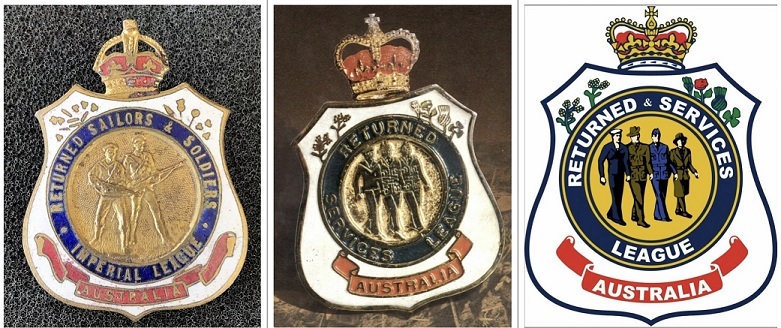
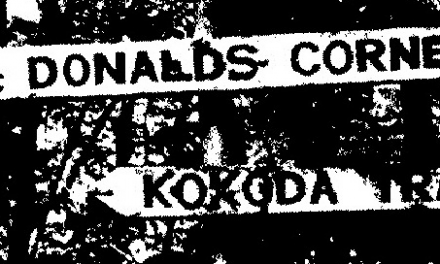

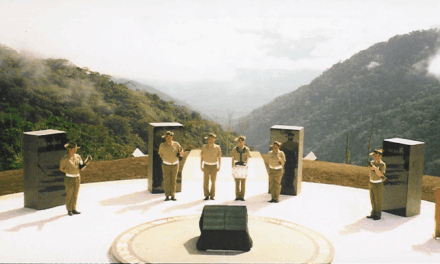
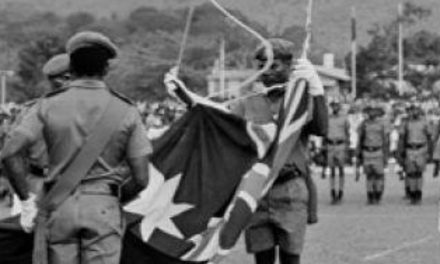
Well written.
In Qld we are lucky to have a financially strong state RSL which allow for a range of iniatives for Veterans young and old.
To engage the younger Veteran, in 2019 I wrote to the
Prime Minister suggesting that Remeberance Day be changed to Veterans Day as the US did in 1954.
This would recognise all those severing and have served.
Unfortunately, it was passed onto Minister Chester who poured cold water on it.
I suggested to the State RSL that the term Sub Branch be changed to Veterans services to better reflect the great work the Sub Branches performed.
The RSL’s challenge is the contemporary Vet is busy with their lives working and raising a family as we did coming back from Vietnam.
There is going to be a massive slump over the next 10 years as my generation can’t maintain our involvement in the RSL and the next generation gets involved.
You are correct in your comments that leadership has be lacking, certainly at the National level.
We need to engage with the PM as he continues to express his support of Veterans.
Well done that man……..
I was secretary of the Katherine RSL back in the eighties, we would have family days, where we would pick up the ww2 vets from home and treat them all to a day out, this would be done a couple of times a year, When I came back to Perth following my discharge and joined the local RSL I was slowly seeing the changes coming in to the sub branches and we never heard a word from Perth. I was a volunteer advocate for close on 18 years and saw the bad come out amongst veterans towards other veterans if they got a bit more pension than others, even down to veterans complaining about other vets at the local sub branch that i was a member of, and it was this behaviour that turned me away from the RSL. I was even a pension officer with Perth Legacy. The Rsl needs good people to take charge of the sub branches, and i’m a beleiver it’s not all take, you have to give back to your members and make sure that they enjoy being a member of that sub branch, The big boys need to remember it’s not all about them, because with out members they have nothing. it has to be an enjoyable club where every one is proud to be a member of the RSL.
I totally endorse Charlie’s words. The RSL in QLD is an example of what not to do in relation to its membership.
I doubt that Charlie’s inspirational words are sufficient to save the RSL from those members who are in it for their own selfish reasons.
Well said Charlie! I wonder where the RSL might be now if the old Alf Garland had have been smart enough to implement the Gollings review, conducted way back when there was still time to “turn the ship around” and keep her off the rocks.
Was it not Whitlam that predicted the demise of the RSL? And was it not I who cheered his dismissal?
At a time when the ADF and Veteran community are under sustained attack by Government and the bureacracy a moribund and meekly subservient RSL remains silent.
When I was posted to Hobart, I met defence members in Devonport and found it almost impossible to enter the RSL with adf cards. Eventually after being told to leave, the young bar girl asked a person to sign us in. 3 people were in that bar, never served a day. They being Tasmanians, did end up being friendly.
I have been denied entry into many clubs. Townsville for me was the worst, told to wait while other walk past you. I am now a member of the Peacekeepers , as they know our rights with vea mrca.
Open your doors and tell the adf in the defence newspapers that.
Then invite the veterans mc clubs peacekeepers etc in.
The new Perth RSL club is an asset. Get the CO’s in for a chat. Then the RSM’s give them a reason and the juniors may follow.
I have had more postings than most, and defence base messing are dying off. It would be hard to have regular attendance by full time defence. Maybe focus on the part time members, (soldiers) many have deployed and are every bit as professional as the full time members. The RSL has a foundation that will never be broken. It may need a few more enters doors for full time and part time defence members, helpers and families.
I have attended several anniversaries and defence functions in the last 12 months. I hope the next ones end up in an RSL.
Well done Spinifex and F88, we slipped into their function recently by mistake, at the Perth city RSL, a very impressive location.
Kind regards Andrew, on my fifth posting to Perth.
I feel that as a veteran here in WA we are already being over ruled by so called Affiliates .If there is enough of them which has occured in our Dongara RSL we have been unable to be on commitees or hold any office of relevance due to the questionable actions of the current commitee.Regards
Mr Charlie Lynn you have hit the nail on the head. The lack of action on many, many fronts is where the RSL has not only taken a backward step but fallen over and doesn’t seem to be able to get up. I as a President of a Sub-Branch in NSW am disgusted and at times ashamed at the way we (Sub-Branches) are being hindered and stopped from doing the job that we have been tasked with. The Hierachy seems to be so intent on making the RSL a Corporate Empire. Why? I do not know. Is it for the glory of those pushing us down this path?. I know change has to occur but not at the expence of the Veterans where we are supposed to be helping. The Board is planning on spending millions of futurising the RSL. These monies can be better spent where needed, down at the grass root level. Why does RSL NSW want to control all of the money that the Sub-Branches invest to enable them to operate and do what they are here for?. Millions of Dollars being spent on consultants and the drive for corporisation is criminal. We were not asked if this is what we want, we were not consulted, we were told. Why will the Board not listen to the Members, they give platitude and say they are listening, but they are not. As long as this attitude continues we will never have a chance to regain or evolve into a better organisation.
Brilliant – couldn’t agree more. Since retiring after 51 years’ Naval service and becoming involved in these veteran support organisations, the points made by Charlie Lynn have become abundantly clear. The WA RSL has recently opened its new State HQ and is pursuing a one-stop shop arrangement to bring many of the veterans’ services together. This is a step in the right direction but is not the totality of the solution. As Charlie has enunciated in his excellent dissertation, the organisational culture needs to be more engaged and the Organisation needs to be more attractive to younger membership, particularly those still serving. Well done Charlie Lynn for starting the discussion.
A good effort Charlie, and I applaud your boldness for telling it as it is and to advocate for significant change.
I recall looking for the RSL’s initial response to the Productivity Commission’s call for submissions into the provision of services to veterans, and not finding anything. That was when I really wondered about the relevance of this tarnished and mute RSL. I support the name change, the incorporation of other vet orgs and, most definitely, participation in public debate. The rise of authoritarianism demands it.
I look forwards to seeing some interest in this.